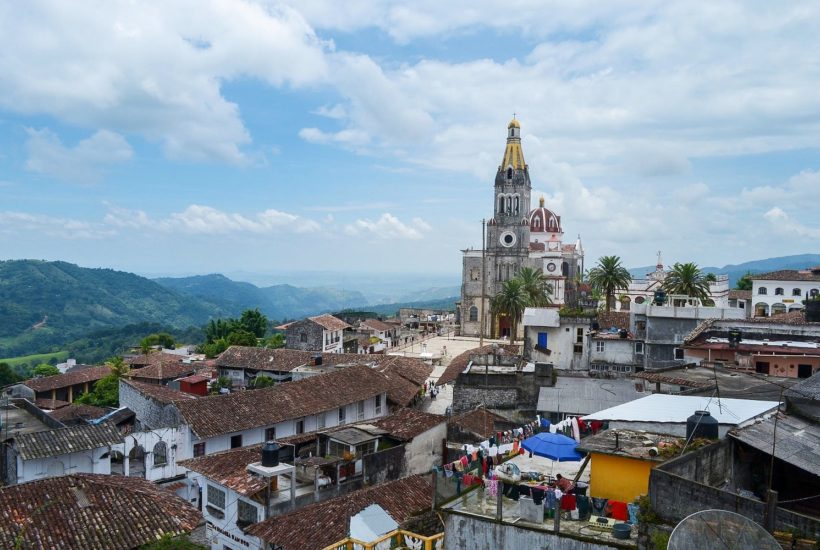Featured
Arch Capital, a new investment fund that seeks to provide liquidity to fintech companies
In the midst of the health and economic crisis, one more option arises for the Mexican fintech sector and companies in the Latin American region which are looking to raise a round of series A investment. This is the new private investment fund in Mexico Arch Capital Partners. In Latin America, there are funds amounting to $8 billion, of which 75% is concentrated in payments and loans.

Arch Cap started operations after the outburst of the pandemic with the goal of providing liquidity to Latin American fintech companies to improve and consolidate their existing financial products. “We are at the prime moment when these startups are going to start paying off within five years, but they need that Mexican ally that has that expertise,” said Victor Lau, senior managing director and partner of ArchCap, a new investment fund looking for giving liquidity to fintech companies.
Lau commented that the fintech market will be one of the main pillars of ArchCapital because it is growing and showing potential in Mexico and the rest of Latin America.
Find more details about Arch Capital plans to offer liquidity to fintech companies in Mexico and the rest of Latin America, and read the latest business news in the world with the Born2Invest mobile app.
Arch Capital will not only serve the fintech sector
The company plans to help fintech companies not only with investment rounds, but also with the regulation process, improve their products and with the internal part of the business, which are areas where fintech companies, according to Lau, require a lot of advice. “We want them to go to the United States and ask for a Series A or if they have a Mexican fund that specializes in Latin America to invest in them. Currently, there are very few and they are not specifically for the Latin American market,” said Lau.
Arch Capital also has two other segments the fund will serve: Real estate and Renewable energy and Biotechnology.
Stefano L. Corsini, CEO and Chairman of Arch Capital, said that the company chose the real estate segment because the hospitality area has been severely affected. While in the area of renewable energies, due to the lack of capital and public resources, the projects are not achieved.
“These are difficult times where private equity and venture capital funds can be of great help to society in general,” Corsini said.
In which fintech categories will the fund invest?
For now, the fund is mapping fintech companies in Mexico and Latin America, although it has already located between four and five fintech companies with which ArchCap will talk and know if they are open to raising their A-round.
The focus of fintech companies will be mainly on Series A and only a few tickets small in Series B. That is because the Bs in fintech and biotechnology are a little higher.
Series A rounds in fintech, according to Lau, are close to $10 or $12 million on average. Although, Arch Capital will not enter the sector alone, but in conjunction with other funds and co-invest, as is the case with most of the funds.
“In Mexico, there are three types of fintech categories: payments, collective funding and debt. From all these really exist very niche processes where we want to invest and we want the money begins to generate not so much new products but the existing ones will be improved and consolidated,” said Lau.
In Latin America, there are funds amounting to $8 billion, of which 75% is concentrated in two sectors in particular: payments and loans.
In Mexico, there are eight of the 25 main fintech companies financed in the region and concentrate on three categories: loans, payments and digital banks, according to the KoreFusion 2020 LATAM Fintech report.
Victor said that they will not be a ‘hero’ of the fintech categories that are not turning to other investment funds, because there are reasons why these fintech categories, such as crowdfunding, are not being funded as much as loans or payments.
“It is a process where crowdfunding and the process to collect real estate investment or loans would still seem to be fresh. The process regulatory issues at that point are the heaviest; more difficult because it is limited in the type of investor you can have.”
__
(Featured image by CrismarPerez via Pixabay)
DISCLAIMER: This article was written by a third party contributor and does not reflect the opinion of Born2Invest, its management, staff or its associates. Please review our disclaimer for more information.
This article may include forward-looking statements. These forward-looking statements generally are identified by the words “believe,” “project,” “estimate,” “become,” “plan,” “will,” and similar expressions. These forward-looking statements involve known and unknown risks as well as uncertainties, including those discussed in the following cautionary statements and elsewhere in this article and on this site. Although the Company may believe that its expectations are based on reasonable assumptions, the actual results that the Company may achieve may differ materially from any forward-looking statements, which reflect the opinions of the management of the Company only as of the date hereof. Additionally, please make sure to read these important disclosures.
First published in EL CEO, a third-party contributor translated and adapted the article from the original. In case of discrepancy, the original will prevail.
Although we made reasonable efforts to provide accurate translations, some parts may be incorrect. Born2Invest assumes no responsibility for errors, omissions or ambiguities in the translations provided on this website. Any person or entity relying on translated content does so at their own risk. Born2Invest is not responsible for losses caused by such reliance on the accuracy or reliability of translated information. If you wish to report an error or inaccuracy in the translation, we encourage you to contact us.

-

 Crowdfunding2 weeks ago
Crowdfunding2 weeks agoSavwa Wins Global Design Awards and Launches Water-Saving Carafe on Kickstarter
-

 Business6 days ago
Business6 days agoDow Jones Nears New High as Historic Signals Flash Caution
-

 Crypto3 days ago
Crypto3 days agoBitcoin Surges Toward $110K Amid Trade News and Solana ETF Boost
-

 Fintech1 week ago
Fintech1 week agoMuzinich and Nao Partner to Open Private Credit Fund to Retail Investors
























